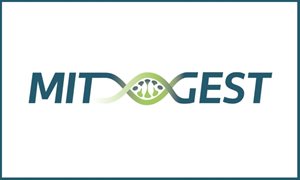 Martijn Huijnen, theme Mitochondrial diseases, and colleagues developed COmplexome Profiling ALignment (COPAL) to systematically asses the effect of Barth syndome on mitochondrial protein complexes.
Martijn Huijnen, theme Mitochondrial diseases, and colleagues developed COmplexome Profiling ALignment (COPAL) to systematically asses the effect of Barth syndome on mitochondrial protein complexes.
Complexome profiling combines native gel electrophoresis with mass spectrometry to obtain the inventory, composition and abundance of multiprotein assemblies in an organelle. Applying complexome profiling to determine the effect of a mutation on protein complexes requires separating technical and biological variations from the variations caused by that mutation.
They have developed the COmplexome Profiling ALignment (COPAL) tool that aligns multiple complexome profiles with each other. It includes the abundance profiles of all proteins on two gels, using a multidimensional implementation of the dynamic time warping algorithm to align the gels. Subsequent progressive alignment allows them to align multiple profiles with each other. They tested COPAL on complexome profiles from control mitochondria and from Barth syndrome (BTHS) mitochondria, which have a mutation in tafazzin gene that is involved in remodelling the inner mitochondrial membrane phospholipid cardiolipin. By comparing the variation between BTHS mitochondria and controls with the variation among either, they assessed the effects of BTHS on the abundance profiles of individual proteins. Combining those profiles with gene set enrichment analysis allows detecting significantly affected protein complexes. Most of the significantly affected protein complexes are located in the inner mitochondrial membrane (MICOS, prohibitins), or are attached to it (the large ribosomal subunit).
Related news items

Hans Spelbrink is beneficiary of the MITGEST Doctoral Network which receives 2.6 million euros funding (PhD positions available)
27 September 2022EU has granted the new Doctoral Network “MITGEST” (Quality Control of the Mitochondrial Gene Expression System in Health and Disease), of which Radboudumc is one of the partners, with 2.6 million euros of funding under the Marie Sklodowska-Curie Actions.
go to page
Detecting more rare diseases through analysis in three dimensions contributed by Radboudumc, BioProdict and Vartion
19 November 2020 Martijn Huijnen, will lead an European Regional Development Fund (EFRO) project entitled "Diagnostics-in-3D". go to page
Metakids-UMD grant for Purva Kulkarni
18 June 2020 The Metakids foundation has awarded 220.575 Euro to support the establishment of a multi-omics biomarker platform within the United for Metabolic Disease (UMD) consortium. go to page
MetaDome highly accessed
7 May 2020MetaDome was recently recognized as one of the most accessed articles of 2018-2019 in Human Mutation. The MetaDome was a project developed by Laurens van de Wiel, Christian Gilissen, and Gert Vriend.
go to page
Front cover Human Mutation
21 August 2019The MetaDome web server build to interpret genetic variants based on genetic tolerance and homologous protein domains is featured on the Cover of Human Mutation. MetaDome was developed by Laurens van de Wiel, Coos Baakman, Daan Gilissen, Joris Veltman, Gert Vriend and Christian Gilissen,
go to page
